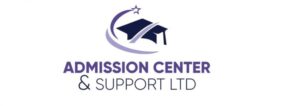BSc (Hons) Health and Social Care with Foundation Year in Health and Care
Benefits Of BSc (Hons) Health and Social Care with Foundation Year in Health and Care

Students learn the principles and skills involved in managing people and the employment relationship. It will also equip students to conduct advanced research into a variety of human resource management issues whilst focusing on the interrelationship of human resource management and organisational performance both nationally and internationally.
- Law and legal practice
- Policing profession (CertHE)
- International hotel management
Course summary This is a level 4 course and has been designed to introduce key concepts of legal system(s) of England and Wales. With this course you get to understand the basics of civil law and the criminal justice system. Going by the fact that law is highly reputable course, enrolling for law and legal practice is going to give you a deeper insight into the functioning of the society as well as the individuals, courtesy of legal structures in place. Modules Criminal Law (20 credits; compulsory) Criminal Litigation (20 credits; compulsory) Learning in the Digital Era (20 credits; compulsory; Framework module) Legal Process (20 credits; compulsory) Principles of Professional Legal Practice (20 credits; compulsory) Public Law (20 credits; compulsory). Entry criteria Excitingly, this course does not require prior qualification or even work experience. It is a course for everyone that wants to learn about law. You will only be required to attend and interview and a timed test. There are also some English language requirements that you will need to meet. Career opportunities This course equips one with wide range of employable skills that make your job ready upon completion. You can be employed in various legal firms both locally and even beyond the national boundaries.
Course summary
The Certificate in Higher Education in the Policing Profession will give students knowledge and comprehension of important subjects that are essential for 21st-century successful policing.
The goal of the course is to help students grow to the point where they can make wise decisions under the most demanding conditions, use discretion when dealing with criminals, and base their policing decisions on thoughtful consideration and facts.
Modules
- Criminal Law (20 credits; component pass)
- Evidence-based Approaches to Policing Decisions (20 credits; component pass)
- Learning in the Digital Era (20 credits; component pass; Graduate Attributes Framework module)
- Legal Process (20 credits; component pass)
- Preparing for Professional Policing (20 credits; component pass)
- Response Policing (20 credits; component pass).
Entry criteria
40 UCAS points or equivalent.
Career opportunities
If your career ambitions are to join police force then this is the course for you. This course puts you in an advantageous position, as the university has partnered with South Wales Police, Gwent and Dyfed Powys Police, enabling students to experience the profession fast hand. The course also enables the work in any criminal justice system profession.
Course summary
– There are multiple programme durations:
- Standard: Three academic years programme of full-time study and up to six years part-time.
- Non-standard: two academic year accelerated programme of full-time study with placement year, and up to four years part-time.
– The pattern of full-time delivery varies depending on programme duration
- Standard three year: Three terms per academic year. Full-time students will study 40-credits worth of modules per academic term. Within a term, the modules run in parallel with each other.
- Non-standard accelerated two year programme with placement: Three terms per academic year. Full-time students will study 60-credits worth of modules per academic term. Within a term, the modules run in parallel with each other.
– Part-time study allows maximum flexibility for students to suit their workload and family commitments. Students will typically study half the credits of a full-time study equivalent (60 credits per year).
– All modules are compulsory.
Modules
Year One – Level 4 (Cert HE, Dip HE & BA)
- Business Skills for the International Hotel Industry (20 credits)
- Marketing Essentials (20 credits)
- Hospitality and Guest Services for the Hotel Industry (20 credits)
- Food and Beverage Operations (20 credits)
- Hotel Administration and Front Office Operations (20 credits)
- Operating Hotel Facilities (20 credits).
Year Two – Level 5 (Dip HE & BA)
- Financial Management for the Hotel Industry (20 credits)
- Foreign Languages and Cultural Awareness (20 credits)
- Entrepreneurship (20 credits)
- Personnel Resourcing and Development (20 credits)
- Management and Organisational Behaviour (20 credits)
- Sustainable Hospitality and Tourism Management (20 credits).
Year Three – Level 6 (BA)
- Hotel Placement Project (30 credits)
- Managing Food and Beverage Operations (10 credits)
- Managing Guest Service Operations (10 credits)
- Managing Hotel Administration (10 credits)
- International Meetings Management for the Hotel Industry (20 credits)
- Contemporary Themes in the Hotel and Hospitality Sector (20 credits)
- Organisational Consultancy (20 credits).
All modules are compulsory.
Entry criteria
Students must typically have 88 UCAS points to be eligible for the programs. However, grades are not the main entry criteria as a prospective student needs to clearly demonstrate that they are innovative enough.
All applicants will participate in interviews to determine their aptitude for the course they have chosen. During these meetings, your abilities, accomplishments, and life experience will be taken into account in addition to your educational background.
Career opportunities
The course equips its graduates with wide-ranging opportunities fit for the hospitality industry, where one can work in family-owned hotels, other hospitality businesses, consultancy firms and even in other career fields.
